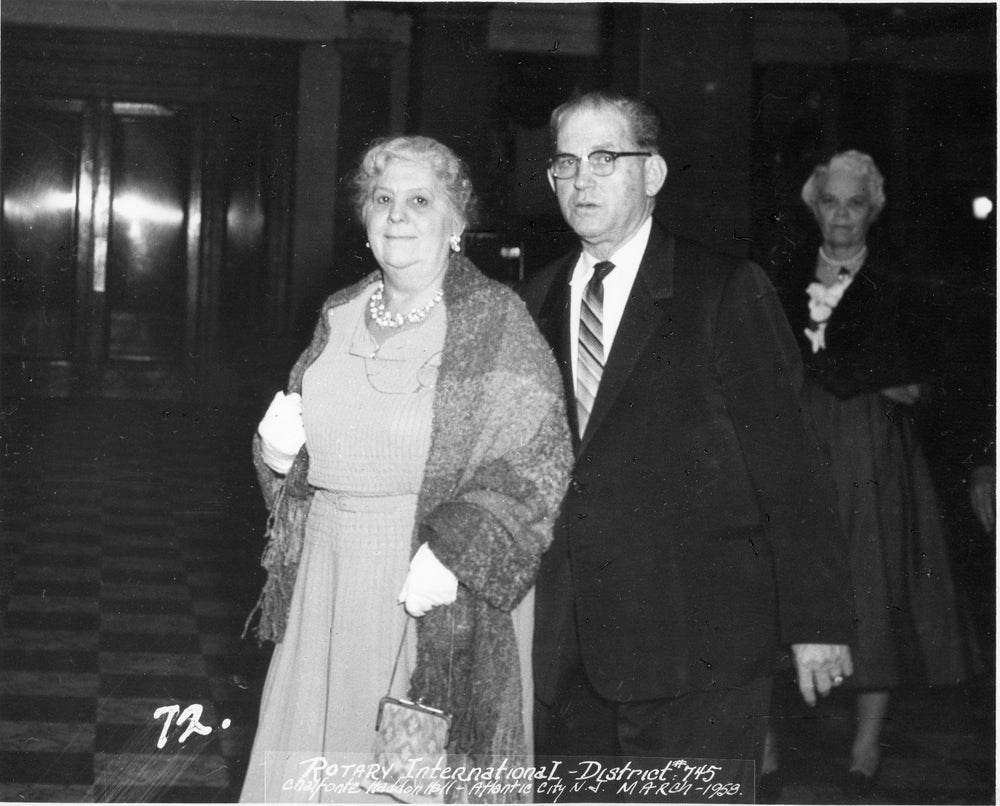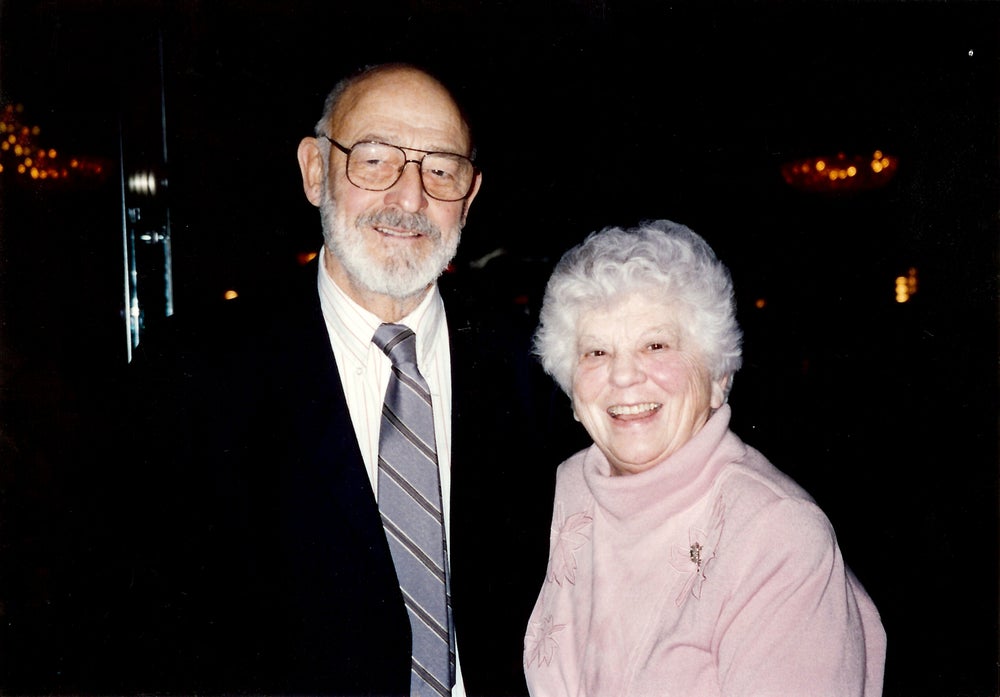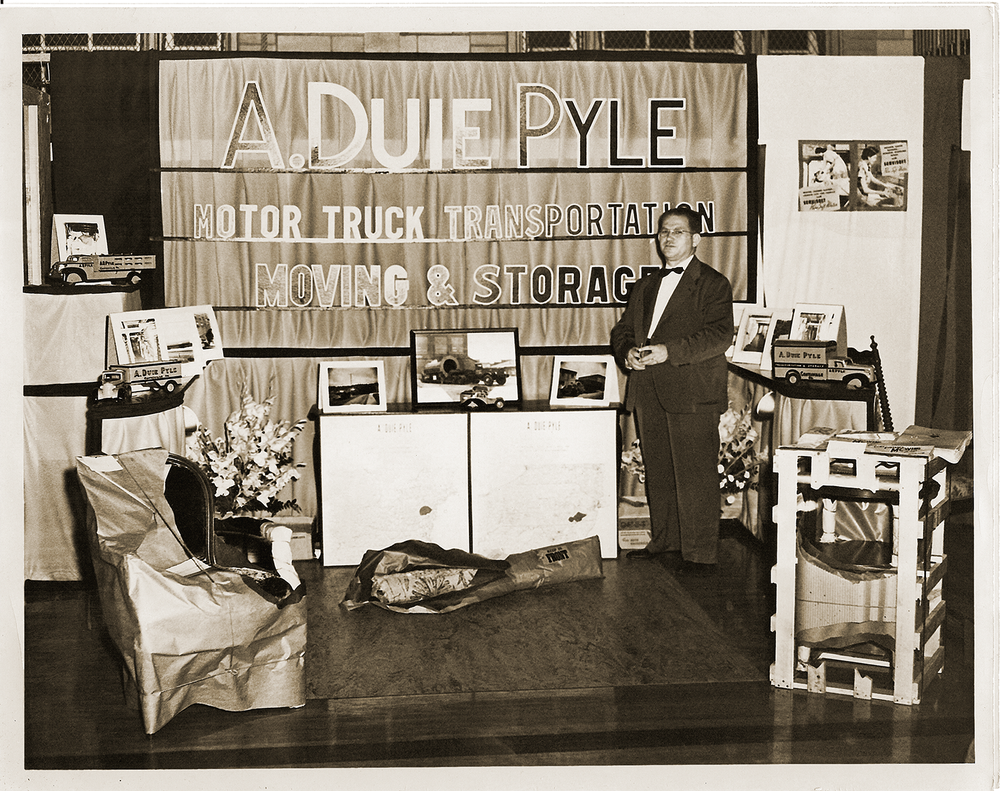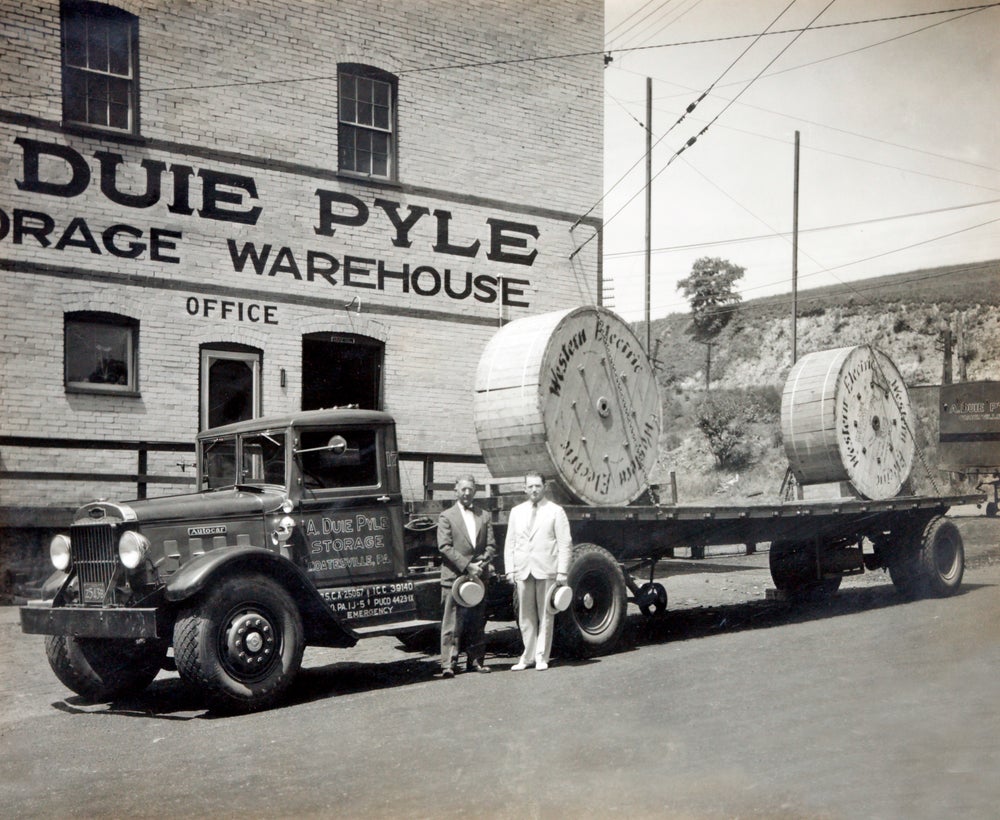
Peter Latta, 67, is the third-generation CEO and owner of a transportation and logistics company based in West Chester, Pennsylvania. A. Duie PyleHe was only 12 years old when he first tried his hand at the family business.
“On the very first day, the workshop manager asked me to fill up the truck, which was at two gas pumps,” Latta says. Entrepreneur“I went out and figured out how to fill up the truck, and he came over and said, ‘Son, do you know the difference between diesel and gasoline?’ And I said, ‘Uh, no.’ And he said, ‘Well, you just put the wrong fuel in the truck.’”
Despite a difficult start, Latta delved into the 100-year history of his grandfather Alexander Duie Pyle’s company and helped it through periods of great growth.
Photo credit: Courtesy of A. Duie Pyle. The Lattas; Peter Latta, center.
The story begins with the purchase of a used truck in 1924; Alexander Duie Pyle drove the vehicle, and his wife, Mary Ellen, Latta’s grandmother, was the bookkeeper and dispatcher for the small operation. The couple had one daughter, Latta’s mother Eleanor, who married James (Jim) Latta. When Latta returned from serving in World War II, he joined A. Duie Pyle in what he thought was a temporary position — but he stayed until his death in 1995, Latta says.
 Photo Credit: Courtesy of A. Duie Pyle. Mary Ellen and Alexander Duie Pyle.
Photo Credit: Courtesy of A. Duie Pyle. Mary Ellen and Alexander Duie Pyle.
A decade earlier, in 1985, Peter Latta returned full-time to A. Duie Pyle after working as an accountant and then as a lawyer. At the time, the company had fewer than 100 employees and was doing about $10 million in annual revenue, he said. Now Pyle, which serves the Northeast and has expanded its reach through partnerships in the Southeast, Midwest and Canada, has greater than 4,300 employees and is on track to do $850 million in revenue this yr.
The company’s largest business unit is less-than-truckload transportation, a for-hire trucking service for relatively small loads or volumes of products. In 2013, Pyle launched its dedicated service business, which customers including the Wegman’s supermarket chain sign on for full-time contracts. Pyle also operates a warehousing and distribution business, a truckload management service and a traditional steel transportation business.
“If people trust each other, [and] They rely on each other and don’t want to let each other down.”
While Pyle’s reach and revenues are now impressive, the company has had to overcome significant challenges and capitalize on opportunities to achieve its current success.
In 1979, a yr before deregulation of the trucking industry began, Pyle endured a three-month strike as Latta’s father, then CEO, tried to negotiate terms for Jimmy Hoffa Sr.’s Teamsters National Motor Freight Agreement. He proposed a latest termination date and a five-cent-an-hour difference, believing the 30-year-old union couldn’t be sustained if Pyle had to weather the coming storm.
 Photo Credit: Courtesy of A. Duie Pyle. Jim and Eleanor Latta.
Photo Credit: Courtesy of A. Duie Pyle. Jim and Eleanor Latta.
Ultimately, Jim Latta’s leadership strengthened the business: After a 14-week strike, about 30 of nearly 100 staff resigned from the union and crossed the picket line. After the decertification election, Pyle became a union-free company. “Trust is a powerful thing,” Latta says. “I learned that during the Teamsters’ strike. When people trust each other, [and] They rely on each other and don’t want to let each other down.”
Then, in 1980, deregulation began. The trucking industry wasn’t regulated until 1935, when it was treated “like a public utility,” Latta says. The Interstate Commerce Commission regulated interstate moves, and a state’s public utility commission regulated moves inside its borders.
“If you operated, you had grandfathered rights to operate in the territory that you operated in,” Latta says. “Certainly, that was our situation from 1935 to 1980. It was very difficult to get certificates of authority to operate from the Interstate Commerce Commission or the state public utility commissions. And so carriers would buy another carrier to get their certificate of authority to operate.”
 Photo Credit: Courtesy of A. Duie Pyle. Alexander Duie Pyle at a trade show in 1939.
Photo Credit: Courtesy of A. Duie Pyle. Alexander Duie Pyle at a trade show in 1939.
In addition, during the regulatory period, carriers set rates collectively—with antitrust immunity. Known today as peer pricing, it meant limited price war and “a pretty comfortable world,” Latta says. Then, in 1980, deregulation began, making it easier for carriers to obtain latest permits to operate in the territory and eliminating the antitrust exemption for collective rate setting—which meant an influx of recent carriers and increased price war.
“Nobody knew what it would mean,” Latta recalls, “but it completely turned the industry upside down. Trucking companies reported revenues to the government until 1980, and of the 60 largest carriers by revenue that year, only three, including Pyle, are still in business, Latta says, noting that 55 of those 60 are Teamster union carriers.
“While deregulation has been a disaster for many, many carriers, it has been an opportunity for expansion, growth and profit.”
Until 1996, Pyle operated a single less-than-truckload terminal that served an area of about 50 miles around West Chester, Pennsylvania, and the company didn’t serve any state in its entirety. As industry disruption continued and customers demanded more complete coverage, Pyle took on the challenge, setting itself the goal of becoming a regional carrier in the Northeast.
“At that time, there were six regional carriers that pretty much dominated the market,” Latta says. “We were in shambles as we expanded geographically into that area. Today, all six of those companies are gone, and we survived. So while deregulation was a disaster for many carriers, it was an opportunity to expand, grow, and take advantage of deregulation and increased competition.”
According to Latta, the key to Pyle’s successful century in business “was the commitment of Pyle’s people, which I always attribute to six core values [empathy, candor, citizenship, service first, integrity and profitability]When we embrace that, all the people on the Pyle team create a very healthy culture, and from that culture comes trust.”
“Our secret sauce is our collective, discretionary effort by the people of Pyle.”
That sense of trust reared its ugly head again on June 15, 2019, when Pyle suffered a ransomware attack and was unable to access its voicemail, email, and homegrown operating apps. The company returned to its pen-and-paper approach—and was honest with its customers about the difficult situation. They appreciated the transparency, Latta says, and some even temporarily reopened the business, promising to return once the situation was resolved.
“That connection between core values, culture and trust is where I like to use the term ‘discretionary effort,’ which means above-average effort,” Latta says. “Our secret sauce is our combined discretionary effort of the Pyle people. At the end of the day, we live in a service world. Trucks, trailers, facilities, technology—all of these are tools of the trade, like a saw and hammer are to a carpenter. But it’s the people using the tools and their discretionary effort that determine where we stand compared to our competitors.”
 Image Source: Courtesy of A. Duie Pyle
Image Source: Courtesy of A. Duie Pyle
Latta loves Pyle’s people and culture, and he says he enjoys knowing the company is “financially improving the lives of 4,000 families.” He recalls an interaction about a month ago, when he was at the Bronx New York terminal for a morning meeting, when the driver showed him a picture of the house he and his wife had just bought, one they “never dreamed” they may own, and told him they may save for their children’s college education.
“From a longevity perspective, [it’s about] earning — and I take advantage of the term earning, not winning — earning the trust of our customers, our employees, and the families of our employees — because that’s the quiet force behind the curtain, the families — and helping to motivate our people at Pyle to do great things,” Latta says.

